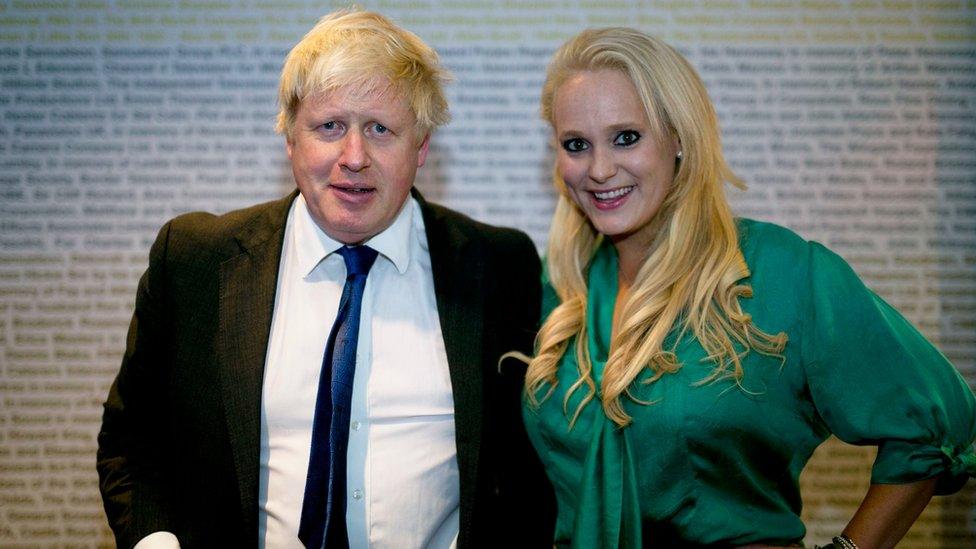Boris Johnson, Jennifer Arcuri, and the mysterious Annie Tacker
- Published
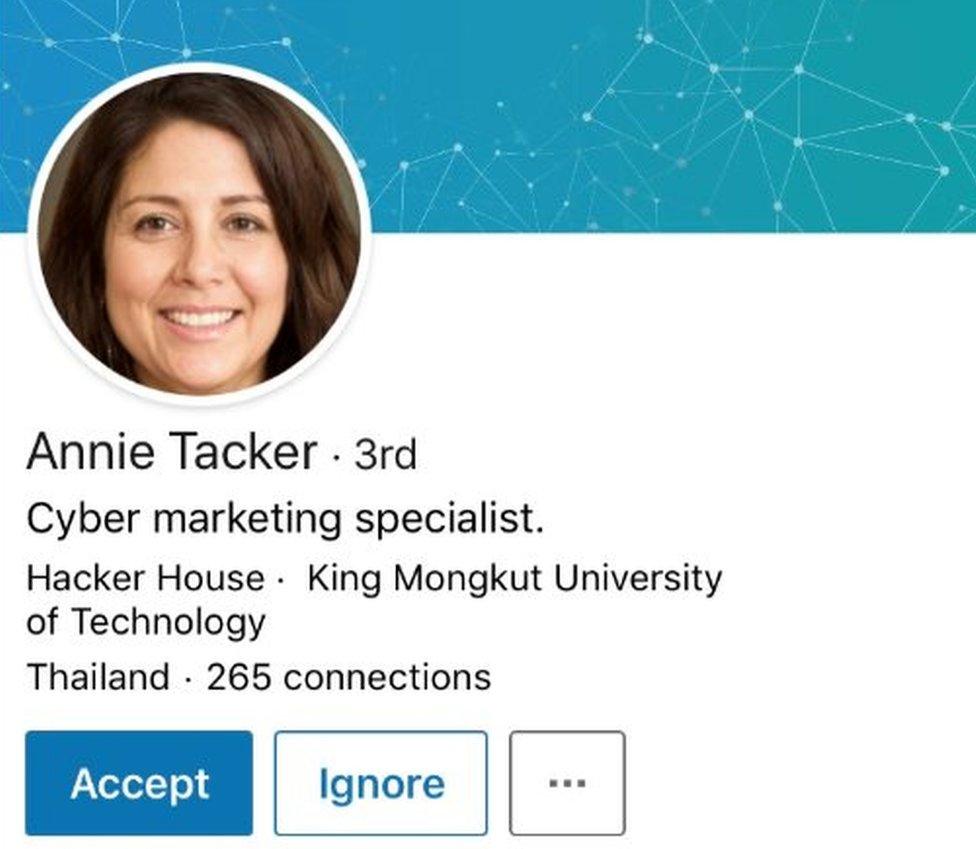
There are many unanswered questions surrounding Boris Johnson's friendship with the US businesswoman Jennifer Arcuri.
For the past two days I've been investigating one of the more bizarre of them: who is her UK-based media manager and is she even real?
In September, following revelations in the Sunday Times, external, the government announced a review into a £100,000 grant given to one of Ms Arcuri's companies.
Hacker House was awarded the sum in February as part of a fund to increase the "diversity and numbers of those working in the UK's booming cyber security sector".
It has so far received £47,000.
One of the questions MPs want the review to address is the extent of the company's links to the UK. The fund was intended for UK-registered companies only.
Digital and Broadband minister Matt Warman told MPs in September that Hacker House had a British phone number. But several people including Labour's shadow culture secretary Tom Watson pointed out that calls to that number were being answered by someone in California.
Now questions have been raised about one of the company's employees claiming to be based in the UK.
At a hearing of the Digital, Culture, Media and Sport Committee on Wednesday, Paul Farrelly, a Labour MP on the committee, said that according to the professional networking website LinkedIn the company's media manager was someone called "Annie T".
But he said that after investigating, it appeared that Annie's profile picture was actually a stock image from a Pinterest page offering business women ideas for headshots.
Culture Secretary Nicky Morgan said the review would look at the evidence "with interest".
So who is 'Annie T'?
Shortly after the session I sent Annie a message asking for an interview. I did not hear back. But I did soon receive a request to connect with someone called "Annie Tacker" on LinkedIn.
Now I had a surname. But a search of various databases showed no one by that name resident in the UK, despite her profile stating she lived in Cheshire.
A short while later, Annie published a bizarre post on Linkedin claiming that she'd been "outed" in the House of Commons.
"As a transitioning woman it's nobodies (sic) business but mine what I put on the Internet," she wrote. "The homophobic UK government should be discussing important topics instead of questioning my gender and identity!"
The post was later deleted and replaced with one including the line: "I am totally real, more real than you'll ever be and more woman than he'll ever have!"
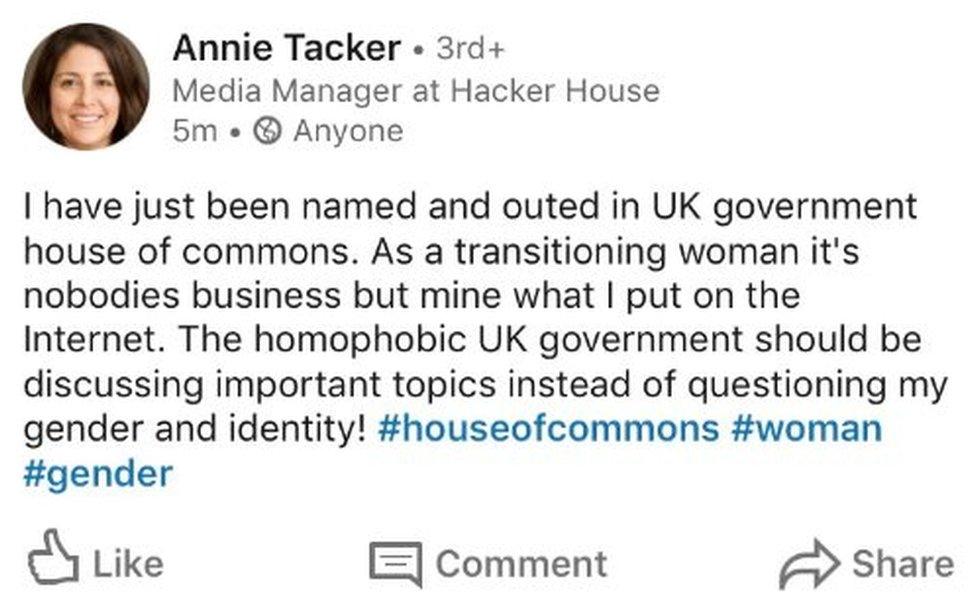
I had noticed that by now her profile picture had changed - but something about the photo was still not right.
A colleague tipped me off that it may be worth exploring if the photo was artificially generated online. These work by bringing together different elements from a large database of different faces to create completely new, artificially created photos.
I wrote to the computer science expert Prof Hany Farid at University of California, Berkeley, who specialises in the analysis of digital images.
He said the image in Annie T's LinkedIn profile contained "some tell-tale signs" of being synthesised.
He said the jewellery on her right ear seemed to be "misformed" and there was no jewellery on her left ear.
Her right pupil appeared to be larger than her left, he added, and that there were "failures of symmetry and streaking artefacts" that are common in AI-synthesised content.
"This, of course, does not mean that the image is definitely manipulated but it does raise suspicion," he added.
If Annie's photo was dubious, there was other evidence from her LinkedIn profile that raised questions.
Under the education section, she had posted that she had a bachelor's degree in Computer Engineering from the prestigious Massachusetts Institute of Technology, in the US, saying she studied there between 2009 and 2013. This would make her an exceptionally well-qualified media manager for a tech company.
But when I wrote to them to check, MIT said there was no record of anyone by the name of Annie Tacker having been a student.
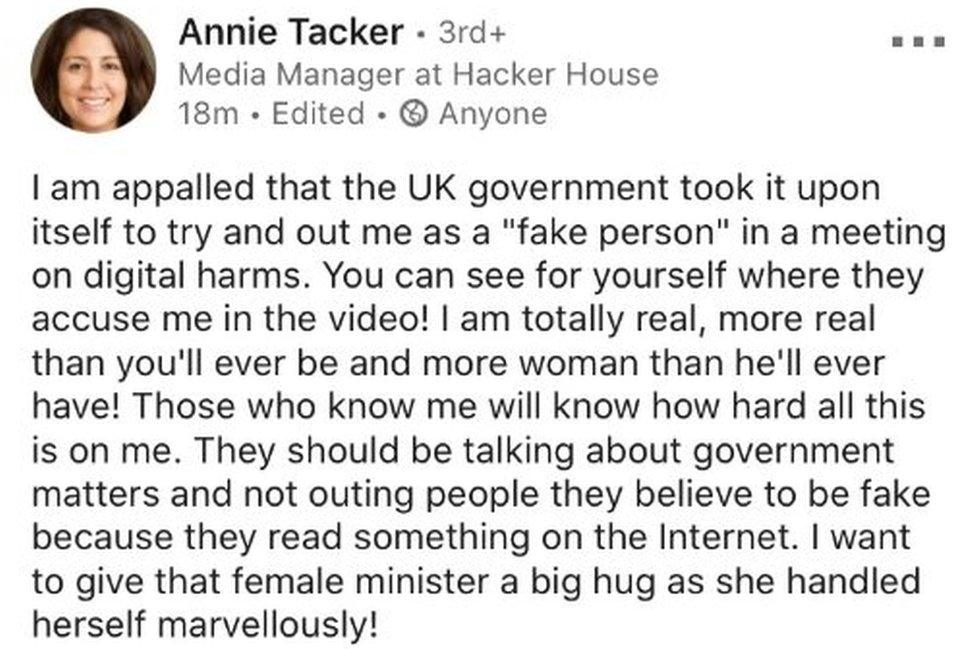
Of course, it is possible Annie may have changed her name since then.
But by now Prof Farid had spotted Annie's profile had changed again. Now she said she had studied at King Mongkut University of Technology, in Thailand, for her degree.
I still had not heard back from Annie herself so I wrote instead to Hacker House to ask what they made of everything I had found. I also asked if it would be possible to speak to their elusive UK employee.
I did not have to wait long for a reply.
Someone called Michael wrote to me to say Annie had not been included in any government funding payments or listed as an employee in any grant application.
"You should write your story about the juvenile snickering by ministers at the term 'penetration testing'," he said, adding: "We watched three MPs who were unable to hide their amusement at the professional terminology thus proving they have no business discussing digital industries or cyber security at all."
For the avoidance of any doubt, penetration testing is where ethical hackers launch their own cyber-attack on a computer system to check how secure it is.
Michael added that Hacker House "had approximately 10 full-time staff in the UK" - note the use of the past tense - and had a handful of supporting contractors in South America and Asia.
Jennifer Arcuri: "I'm not going to put myself in a position where you can weaponise my answer"
He said the company's receptionist had quit after the public called her "10,000 times" to ask if she was living in California.
"Once people stop calling with abusive and harassing messages, we will begin to have staff answer the phones again," he added.
I wrote back thanking Michael for his email but asking again if he could confirm if Annie was real and if I could speak to her. I have still not heard back.
Of course, it could be that Annie Tacker is real after all, that the photo is genuine or that she is just someone who is protective of her identity - in which case, I am sorry.
But MPs on the DCMS committee are likely to want a more definitive answer to this question from the government's review. It is due at the end of this month.
Follow Phil Kemp on Twitter @phill_kemp, external
- Published1 November 2019
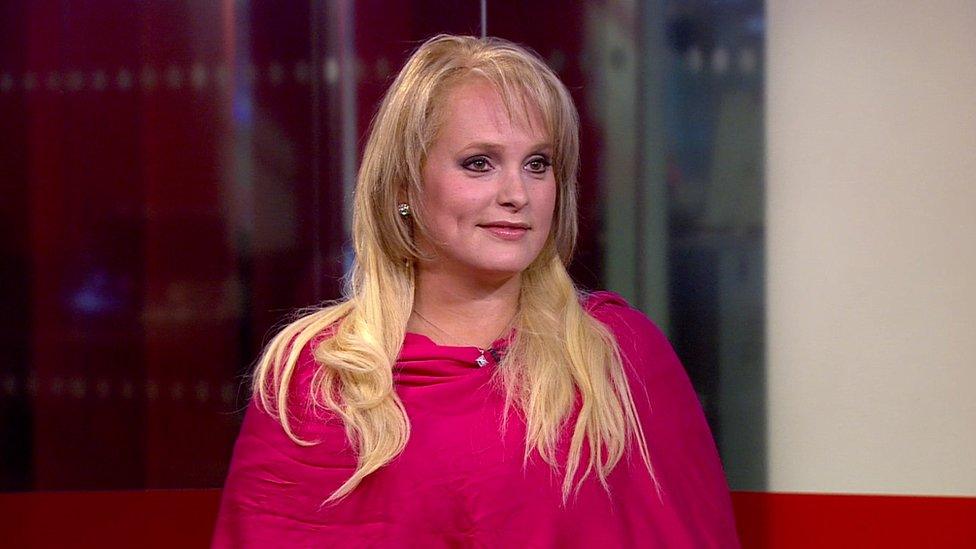
- Published9 October 2019
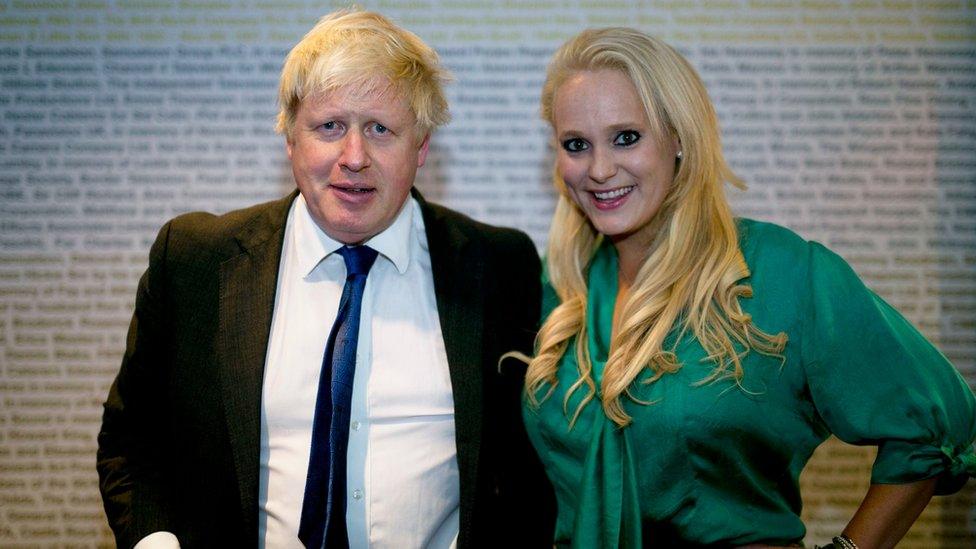
- Published7 October 2019
